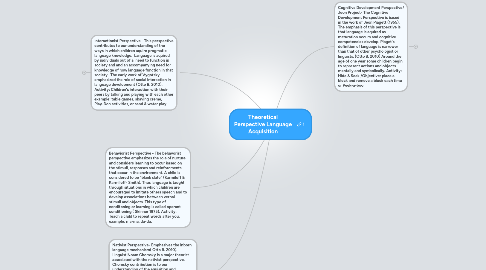Theoretical Perspective Language Acquisition
作者:elsie carty

1. Nativist Perspective- Emphasives the inborn language mechanism( Otto B. 2010). Linguist Noam Chomsky is a major theorist associated with the nativist perspective. Chomsky contribution is to our understanding of the aquisition and structure of language have been significant. The major focus of the nativist perspective is on the aquisition of syntantic knowledge. Chomsky proposed that this universal grammar is an innate property of the human mind ( Otto B. 2010). Activity: picture cards, picture book, My First Dictionary with letters, words, and pictures.
2. Behaviorist Perspective - The behavorist perspective emphasizes the role of nurture and considers learning to occur based on the stimuli, responses and reinforcments that occur in the environment. A child is considered to be "blank slate" (Karmiloff & Karmiloff- Smith). Thus language is taught through situations in which children are encouraged to imitate others speech and to develop associations between verbal stimuli and objects. This type of conditoning or learning is called operant conditioning ( Skinner 1975). Activity: Teach a child to repeat words after you, example: ma-ma, da-da.
3. Interactionist Perspective - This perspective contributes to our understanding of the ways in which children aquire progmatic language knowledge. Language is aquired by individuals out of a need to function in society and and an accompanying need for knowledge of how language function in that society. The early work of Vygotsky emphasized the role of social interaction in language development (Otto B. 2010). Activity: Children's interaction with their peers by talking and playing with each other example: table games, shaving creme, Play-Doh activities, or sand & water play.
3.1. New node
4. Cognitive Development Perspective/ Jeon Project- The Cognitive Development Perspective is based in the work of Jeon Piagett (1955). The emphasis of this perspective is that language is aquired as maturation occurs and cognitive competencies develop. Piaget's definition of language is narrower than that of other psychologist or linguists. (Otto B. 2010) Around the age of one year some children begin to represent actions and objects mentally and symbolically. Activity: Hide & Seek /Objective: place a block and remove a block each time or Peek-a-boo.
4.1. New node
4.2. New node


